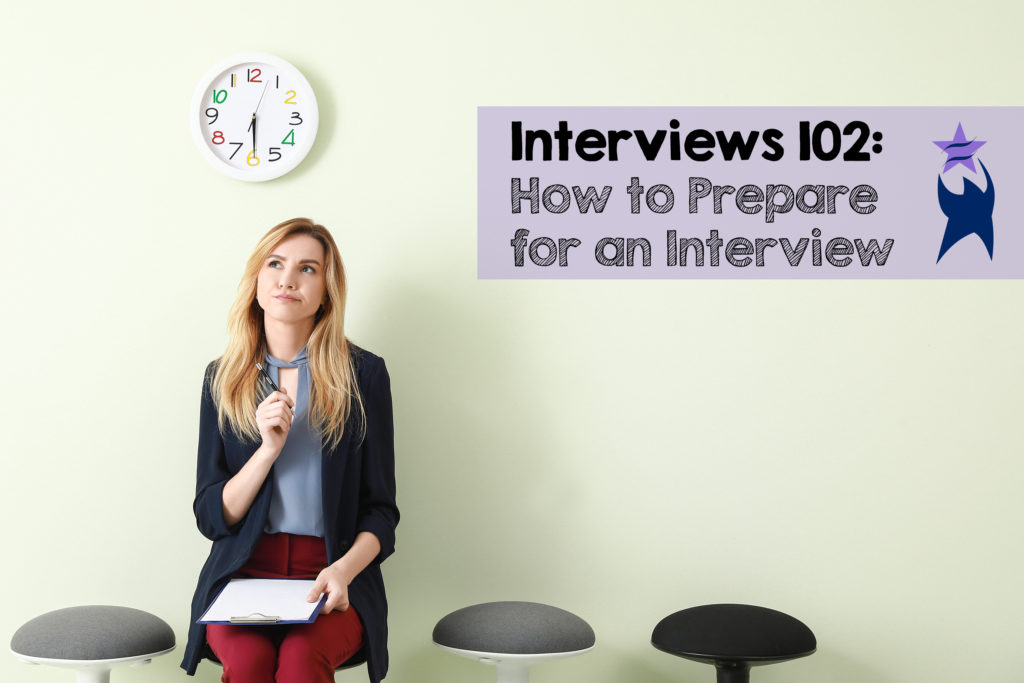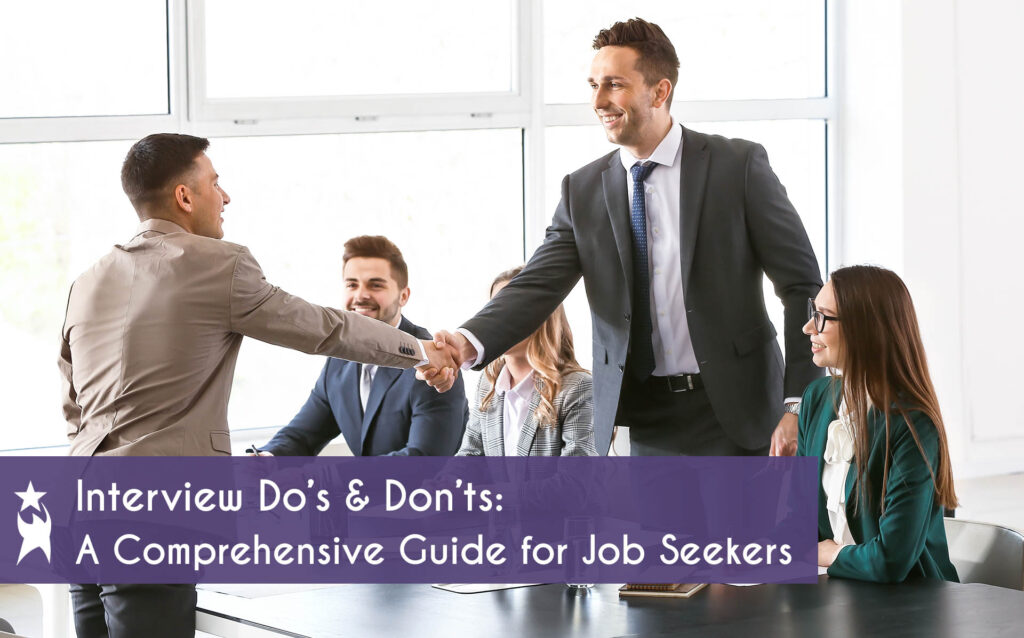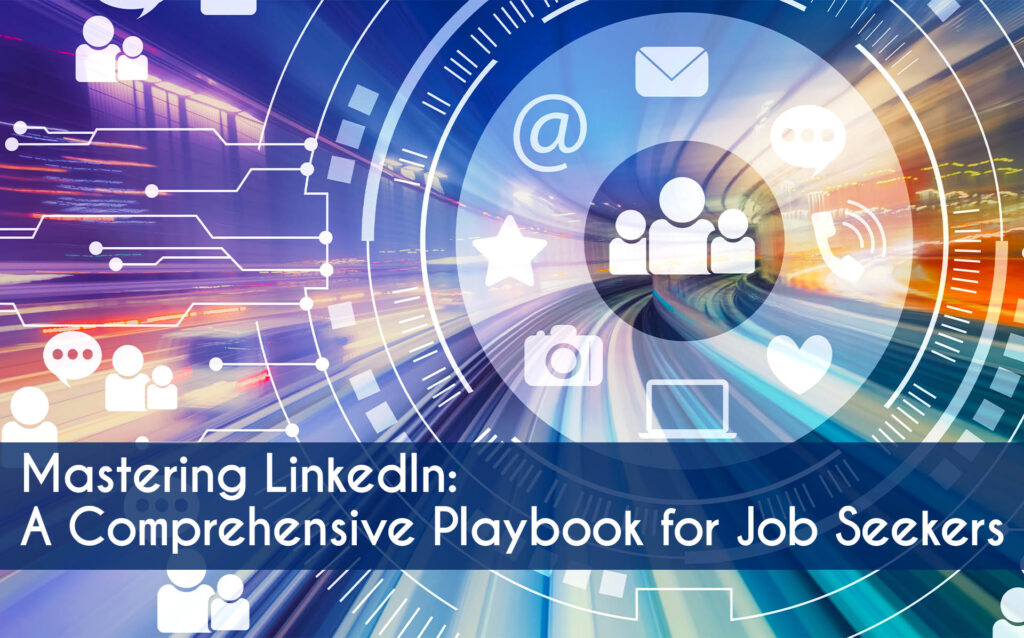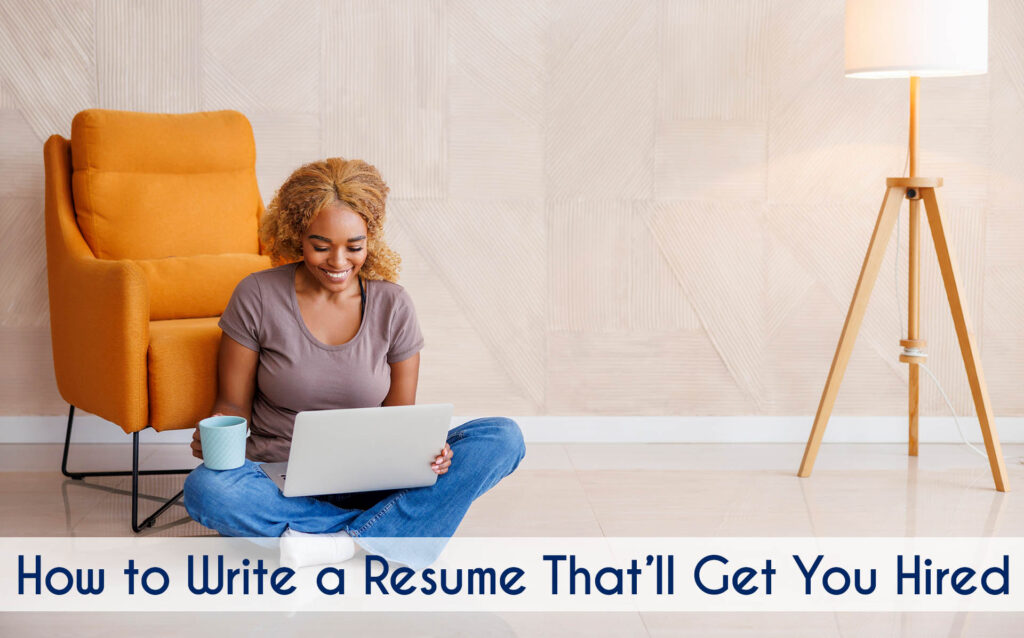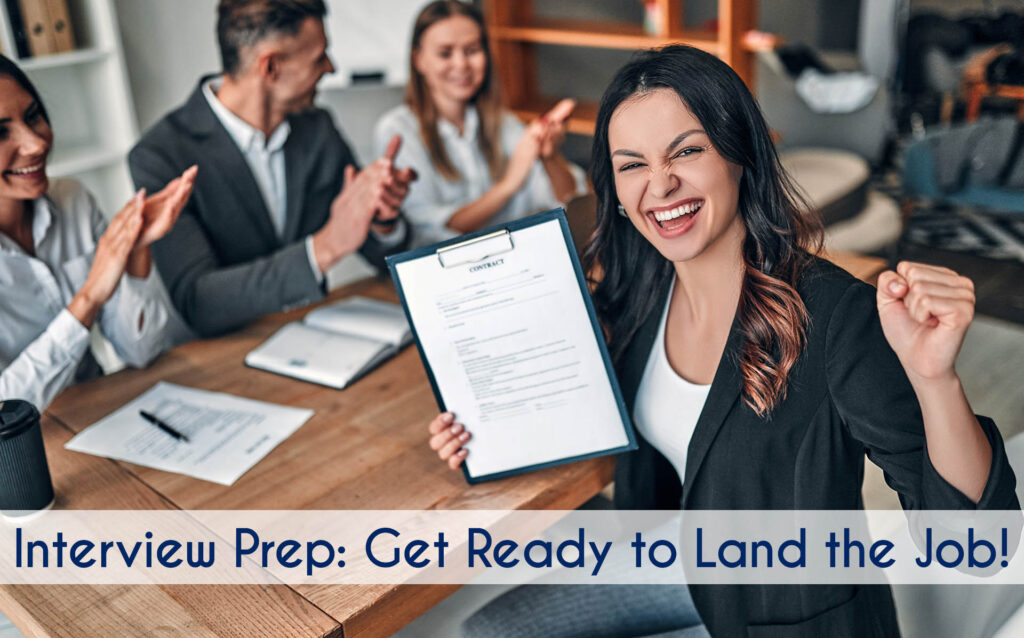July 23, 2021
Congratulations! You’ve landed an interview! But now what? Keep reading below and we’ll walk you through our best tips on how to prepare before your interview to help you land the job.
Q: How should I prepare for an interview?
Jason
This is a great question! What I would say for any job, and this is true even if you’re going to an interview for McDonalds, you should go on the company website and just take a look at it. Maybe they’ll have corporate values, or something in there that will help you understand how your personality aligns with the company’s personality and the values they have as an organization. So at a bare minimum, always look at that.
Likewise, if you’re lucky enough to know the individual that you’re gonna be interviewing with, I would try to search them on LinkedIn. Again, that’s a something I’ve often done. LinkedIn is a growing profile network, and more and more people get on Linkedin every single day. And you can find out a lot about somebody just by finding out what their LinkedIn profile looks like. Generally you can figure out if you have something in common, like if you’ve been to the same cities. And that can become a discussion point during your interview. Lets say, for example, you’re from a different city, and you happen look somebody up and they’ve been to that same city, it’s an immediate conversation point. And it will actually make the interview process far better.
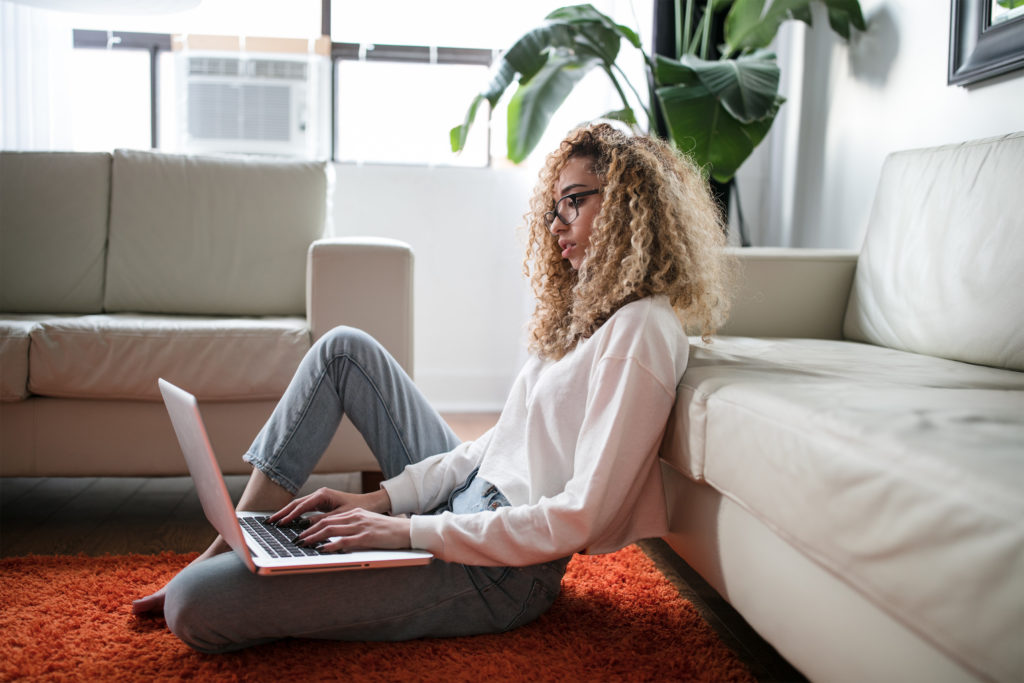
Chrissy
Go back and review the job description. If you’re like most job seekers, then you’ve probably applied for multiple jobs. And therefore you should go back and look at the job ad so the details for this one are fresh in your mind before the interview.
Second, you should also look up the company website, and most companies have a presence on social media too. Their website can answer a lot of questions about what the company does, what their mission is, and you might find bios of key individuals there as well. But social media might clue you in to some different aspects of the company culture. For example, are their posts more formal? Or more laid back? Furthermore, the type of things they’re talking about on social media can clue you in to what’s important to the company. And that’s huge because it can help you focus your answers on things that are important to the company.
Next, if you can practice with a friend or family member who has been through a few successful interviews before, take advantage of that. Have them ask you some common questions. Give them the job ad and your resume, and have them ask about your experience related to items in the job ad. Then ask for their honest opinion on ways to improve.
Of course, one of the most important things you should do is go back and review your resume to make sure key dates and skills are fresh in your mind. In fact you would be amazed at how many people forget some of the key info on their resume. So, having this stuff at the front of your mind as you prepare for your interview will help you give examples with your answers.
Q: How Should I Dress for an Interview?
Jason
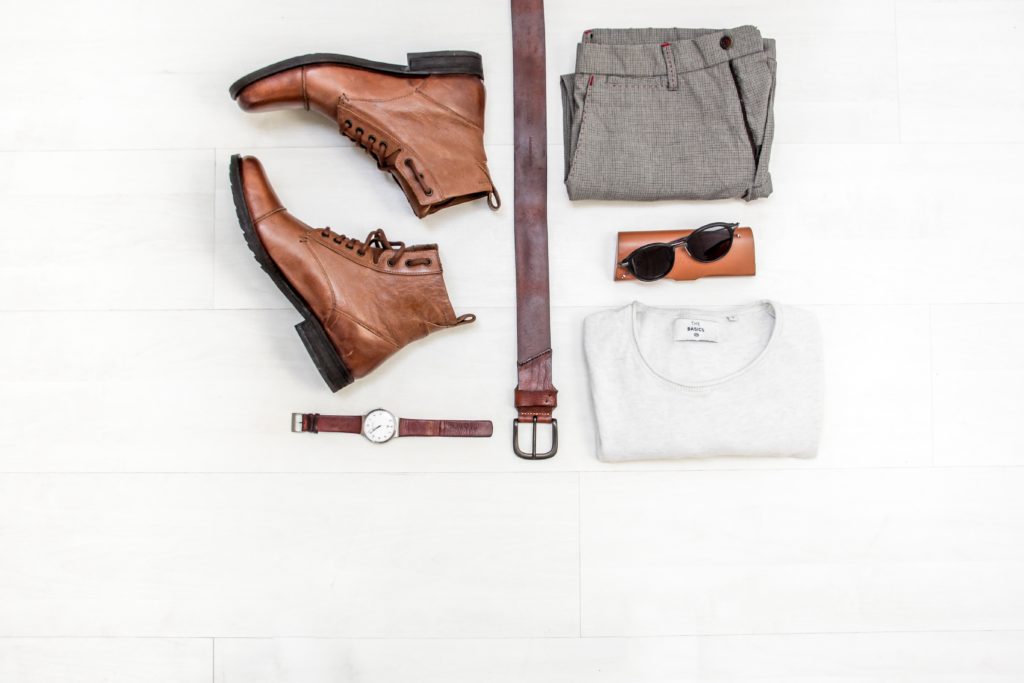
For the guys, I would say at the very minimum, you should be wearing a polo shirt and a nice pair of pants. And that can be a nice pair of jeans. For the ladies, nothing too revealing, nothing too baggy or tight. And, if I understand correctly, probably something with sleeves.
Again, at the end of the day you want to look professional. You wanna look, most importantly, like you’re ready to go to work. That’s how I’ve always thought about it. Again, try to look like you’re ready to work.
Chrissy
In some industries jeans would be fine for an interview. But, make sure they’re clean and nice-looking jeans! However, in other industries you’d be better off wearing slacks and a sweater. I would always recommend researching the company first, and that should give you some clues about what to wear. If your detective skills haven’t helped, then call your recruiter and ask what the company dress code is, and try to match it or wear slightly nicer. However, if they tell you it’s business casual, and you’re not sure what that means, just say thank you; and then search Google images to get a good idea of what to aim for.
Additionally, some things you should never wear include clothes that are ripped or have holes, hats, sandals or flip flops, tank tops, or anything with distracting or inappropriate logos or sayings. Likewise, I would also recommend avoiding shirts or ties with really loud patterns, and really distracting jewelry, because you want the focus on you and how well you fit with the organization. But, if they’re distracted by your accessories, they’ll have trouble focusing on what you’re saying; and you’ll be memorable for all the wrong reasons.
Furthermore, you should avoid perfume and cologne because a lot of people have allergies; and the last thing you want to do is cause your interviewer to remember you as the candidate they were literally allergic to.
Q: What should I bring to an interview?
Chrissy
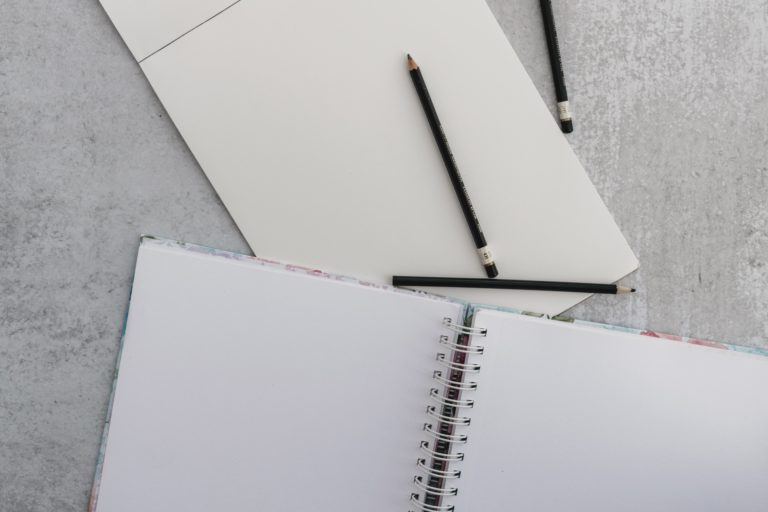
Directions! Make sure you know how to get there and how long it will take, and then leave a little early to make sure you’re on time. Bring a breath mint to use on your way over.
Bring a copy of your resume too. I also like to bring a thank you note I can write out and drop in the mail right after my interview. Thank you notes by e-mail are absolutely the standard, but I like the personal touch of sending an old school thank you note.
Of course, you’ll probably have your cell phone with you, so take a minute to turn it completely off to avoid any alerts or buzzing interrupting your interview.
Jason
Hey great question! Personally I bring a notepad to an interview, and I have a nice fold over binder with some pieces of paper in it. Often I have a couple of quick notes jotted into it in case I need to refresh my memory. And often you’ll get asked a question where you might want to jot some notes down or something like that. And people generally will be accepting with something like that.
Second, I always bring a couple copies of my resume. You wanna make sure you have a couple copies of your resume ready to go. And I would say most importantly bring your smile! Nobody wants a negative attitude walking into an interview. So, bring your smile. And bring a positive attitude. Act like you’re there to help the company, and you’ll do fine.
Q: Should you bring a copy of your resume to your interview?
Jason
Honestly, I would say no, bring two. And I know that sounds really strange, but you might end up interviewing with multiple people; and you wanna have a copy of your resume for every person. I would also expect to almost never use it. I’ve gone into interviews, and always had a copy of my resume but have never needed it. Hiring managers and recruiters tend to be prepared or at least have quick access to look it up. But again, you wanna be prepared. And you wanna take the initiative to be ready and have that copy ready in your folder.
Chrissy
Yep! Bring it! You probably won’t need it, but it’s better to be prepared than to have someone ask for it and sit there looking unprepared while you’re trying to make a good impression. And hopefully you tailored your resume before sending it to the company in the first place, so try to make sure you’ve got the right version of your resume printed out.
Q: Any tips to calm nerves before your interview?
Chrissy
You know, I used to teach and I remember back when I was in school learning to be a teacher, one of my professors said something I’ve never forgotten. They said making large movements with your large muscle groups can help you get rid of some of that nervous energy. Therefore, I always tried to do that in the classroom, and I would say it works. I wouldn’t recommend trying to do jumping jacks in your interview or anything like that, but doing a couple big stretches before you go in the building, or even in the bathroom can help.
You can also try to envision yourself doing a good job. If you can picture it in your mind, then it should help boost your confidence before your interview.
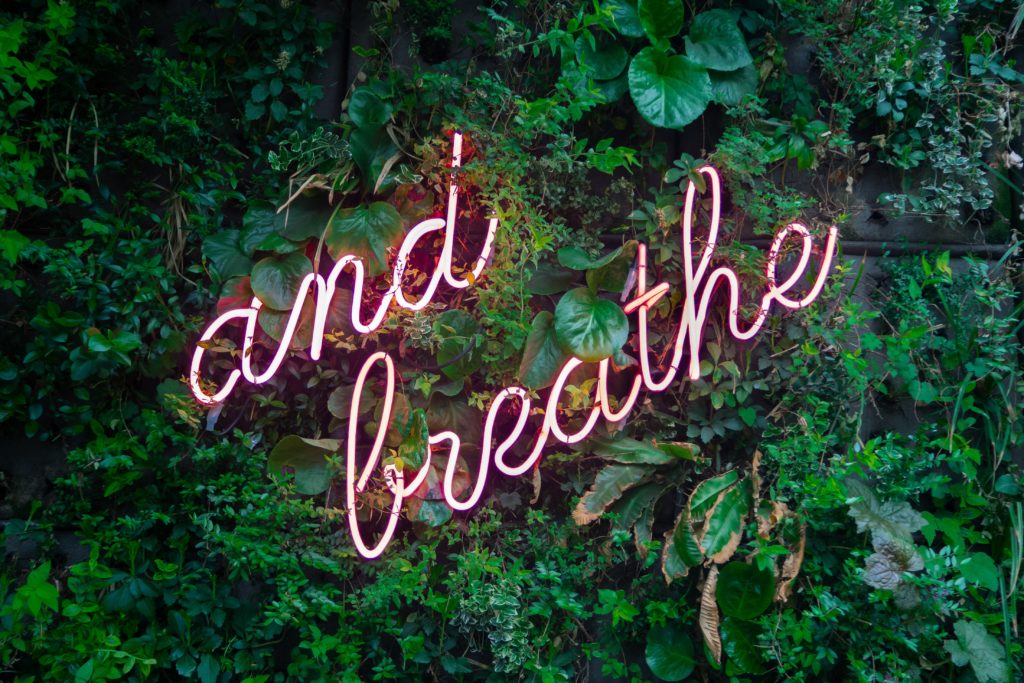
Jason
I can tell you from my own personal experience that you can try counting, read a book, or listen to music. It’s really a personal thing on what can relax you. Sometimes it’s as simple as just taking a really deep breath. On a funny note, something that I do is often with the first question I get asked in the interview, I’ll take a very deep breath and I’ll respond with “OK, and there we go.” And it’s almost like a subconscious thing that I’m doing to myself that says it’s game time. It’s ready to go. It’s time to show who you are and give the best representation of you.

Q: Can job interviews be recorded?
Jason
I actually had to ask on this one, and I’ve never personally had a job interview recorded. But legally they can ask, and you can say yes or no if you feel like it shouldn’t be recorded. Obviously you’re putting yourself in a bad situation if you say no to having it recorded. But I would leave it to your personal preference, and I would be prepared to walk out from that situation if it’s something that feels uncomfortable for you.
Generally speaking, maybe the company is just doing the recording for their own purposes. Again I have never seen it. And I guess that’s the best way I can answer that question.
Chrissy
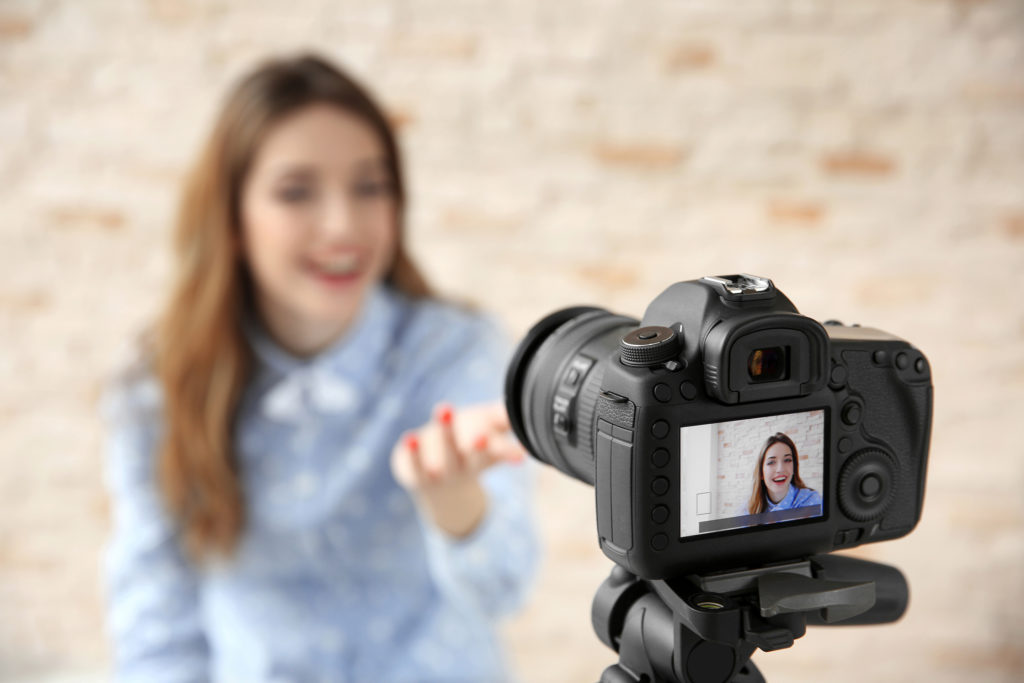
I’ve never had an interview recorded either. But in WA state they are legally required to ask before recording you. If you’re outside of WA, then check your state laws.
With that being said, it’s probably a lot easier to record interviews now with virtual interviews being more common. Some companies might just want to go back and recap an interview or compare a couple of candidates before making a final decision. But go with your instincts on this one. If something doesn’t feel right in the interview, then the job and the company probably aren’t the best fit for you. Definitely be willing to stick up for yourself and say no to anything that makes you feel uncomfortable.
We’ll be back soon with more advanced interview tips! We’re always happy to answer questions from our readers, so send in your best questions!
Check out our other blog posts for more useful tips and tricks!

